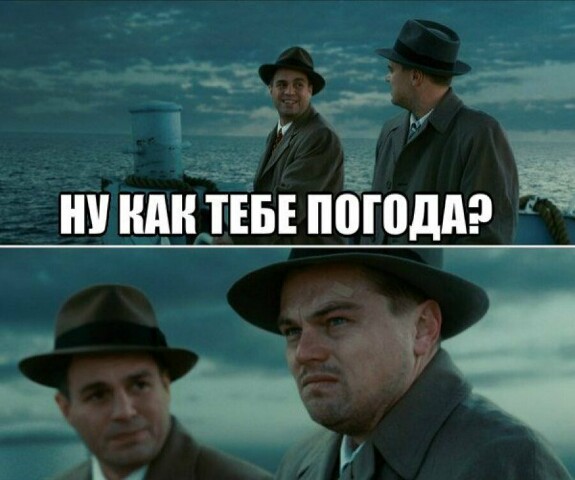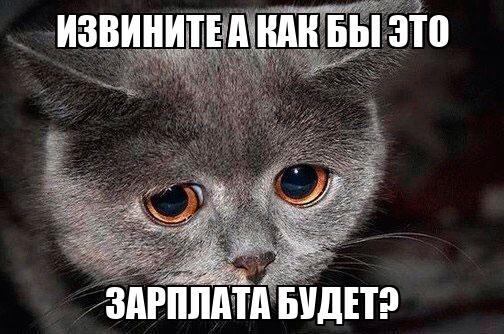10 Essential Russian Words to Sound Fluent
There are some colloquial words commonly used in everyday conversations among Russian speakers. While these words are not exactly slang, they are also not typically used in their original sense, functioning instead as mere fillers.
It's important to know them because if you listen to everyday Russian speech, you will encounter them all the time.
1. НУ (well, so, now)
It's a tricky one. Cause we use it all the time.
And it doesn't really mean a specific thing! For example:
Я так не думаю. - I don't think so.
Ну, я так не думаю. - Well, I don't think so.
The first sentence sounds more definitive, while the second may indicate that the person is less certain, but not always. It depends on the intonation of the speaker.
So yeah, you never know when to use it.

I get the feeling that we use it just to make our speech less "dry" or formal. It's like we feel the need to add something, just because.
We like to add this word to questions as well: ну как? ну что? For example, when we are waiting for a person's reaction for a long time.
2. В ОБЩЕМ (in general)
"В общем" is used to introduce a summary or conclusion, similar to the English phrase "in summary" or "to sum up."
В общем, это был долгий и утомительный день. - In summary, it was a long and tiring day.
Я хотел бы рассказать вам об этом проекте, который, в общем, довольно интересный и, как будто, уникальный в своём роде. - I would like to tell you about this project that is, like, overall, quite interesting and, like, sort of unique in its own way.
In informal conversations, "в общем" is sometimes used as a filler phrase or hesitation marker similar to "well" or "um" in English. It can be used to signal a pause or to gather thoughts before continuing with the conversation. For example:
Это, в общем, довольно сложный вопрос. - This, well, is a rather complex question.
Ну, в общем, я думаю, нам нужно подождать и посмотреть, что будет дальше. - Well, um, I think we need to wait and see what happens next.
3. ВООБЩЕ (in general, overall, whatsoever, actually)
In colloquial Russian this word is especially often used with particles "да", "ну", and sounds like "vashche".
"Ваще" is particularly common as an expression of agreement.
Она совсем офигела! - She became totally brazen!
Да ваще! - Absolutely!
4. ВРОДЕ (sort of, kind of)
The most popular colloquial substitute for "наверное" (I guess) and "думаю, да" (I think so).
It is often accompanied by the particle "бы".
Это он? - Is that him?
Вроде бы да. - I guess so.
5. ПО СУТИ (essentially)
This expression is useful, when you want to emphasize the essence of something.
However, the word means almost nothing in colloquial speech, as it is often stuffed into every other sentence unnecessarily.
6. КАК БЫ (so to say, sort of)
Another good phrase that for some reason has become a meaningless word-parasite.

7. КОРОЧЕ (so, well, in short)
It's a word you can say when you decide to shorten your speech and finally get to the essentials .
Just don't repeat that word through every sentence you say.
8. ТИПА (like, so to speak, kinda)
It originally means "as if" or "like".

Take a picture of me like I'm the boss.
Another function is to indicate an approximation or comparison. It can be translated as "like," "kind of," or "sort of" in English.
Она типа новичок в этой команде. - She's kind of a newcomer to this team.
"Типа" is also used as a filler word or a discourse marker similar to "like" in English. It is used to pause, gather thoughts, or soften statements. For example:
Ну типа, я хотел сделать это, но потом передумал. - Well, like, I wanted to do it, but then I changed my mind.
9. ТАК-ТО (well, in that case, actually)
It's the same as вообще-то (actually, in fact).
This word is commonly used by people who live... let's say far from Moscow and Saint-Petersburg. It is often used as a filler word by characters in TV shows that feature people from disadvantaged neighborhoods, small towns and rural areas.
10. ЗНАЧИТ (so, well, it means)
I remember one time in my school class, I counted how many times the teacher repeated a word. She used it so frequently that it caught my attention.
And guess what was the point of repeating that word? That's right, there was absolutely no point.
To use the words mentioned, you need to get a good feel for the language. You can do this by reading more Russian comments, looking at memes, and watching stories with Russian-speaking people. The more you surround yourself with this language, the better you'll understand when to use each word.
#phrases
#speaking